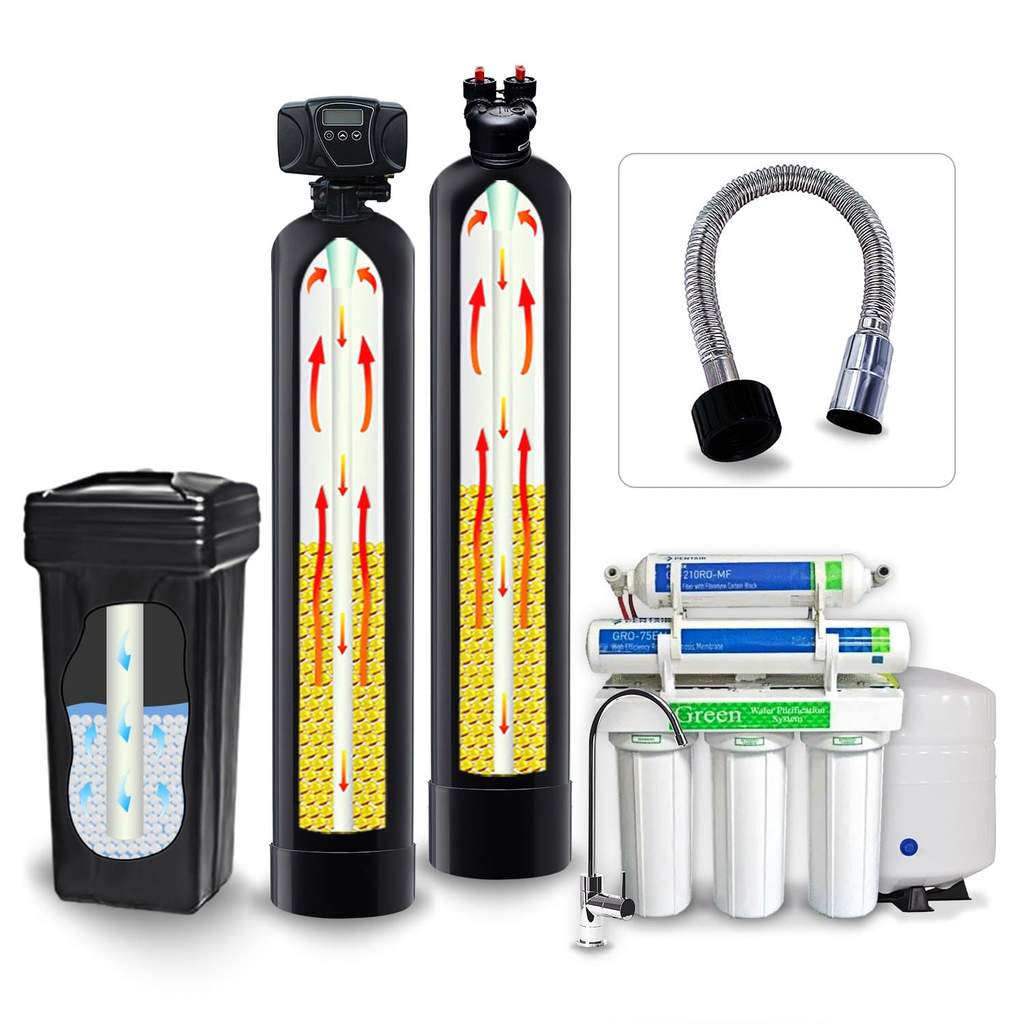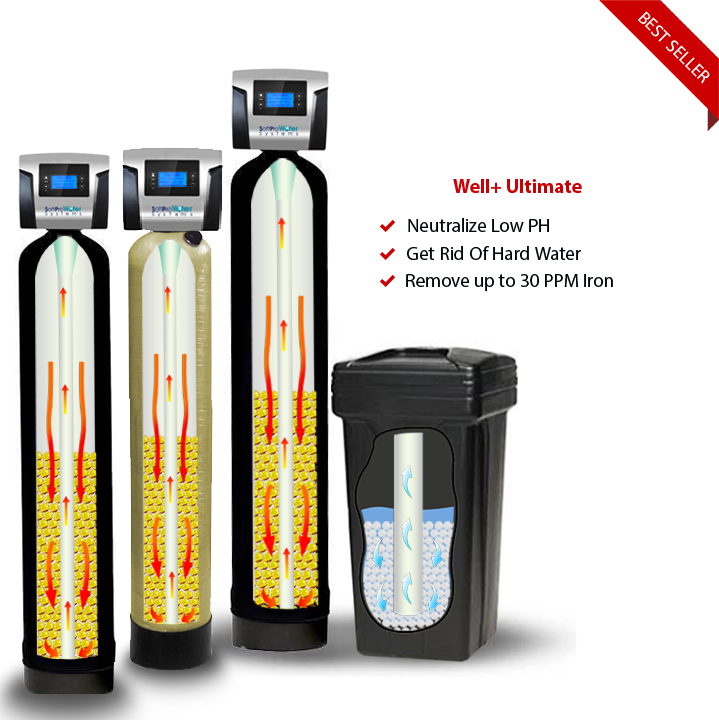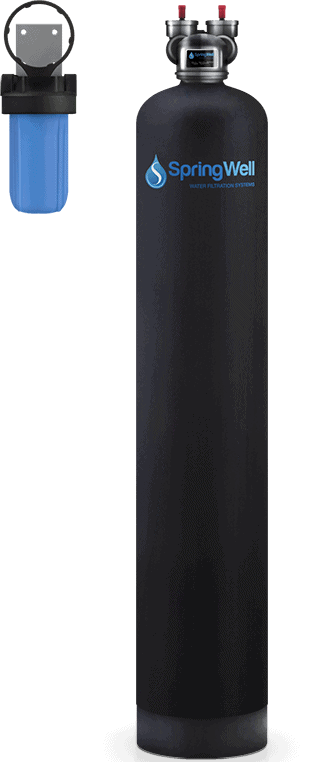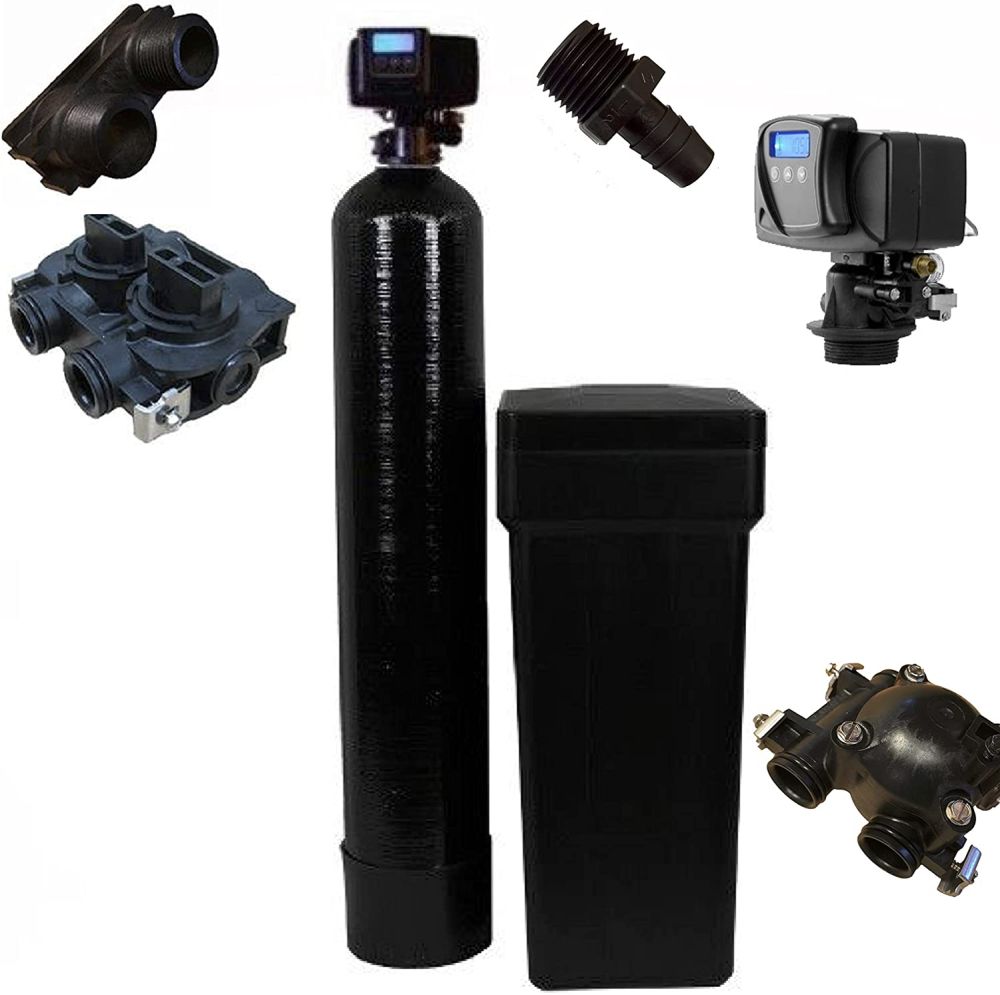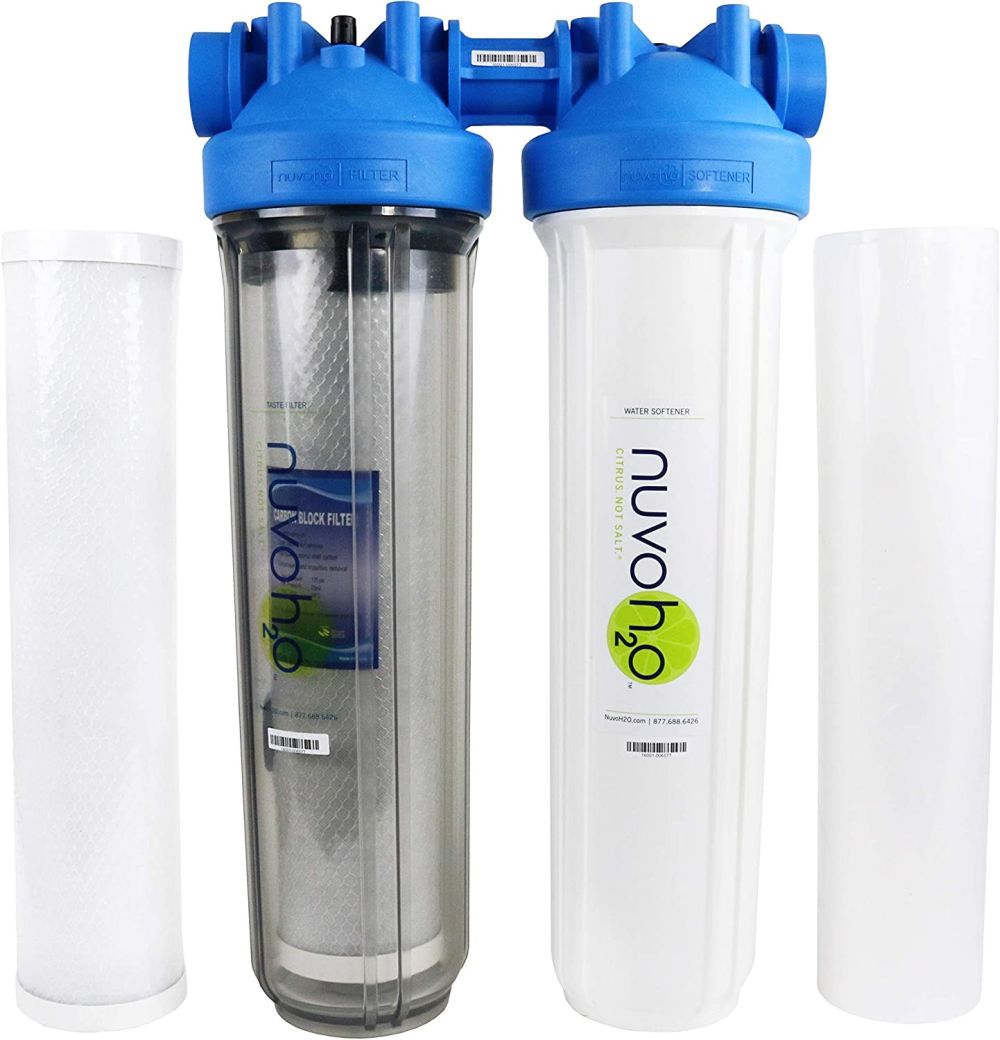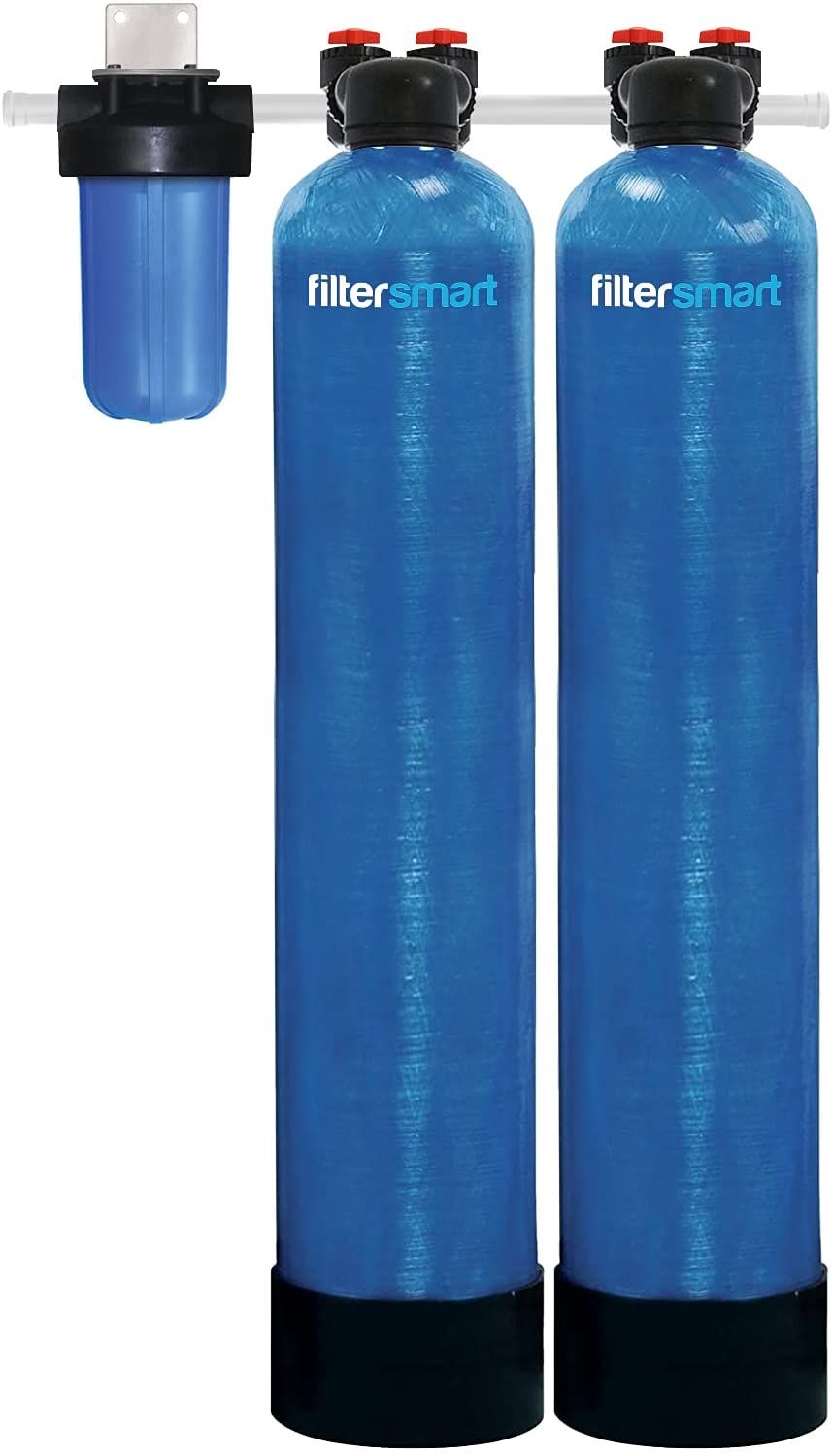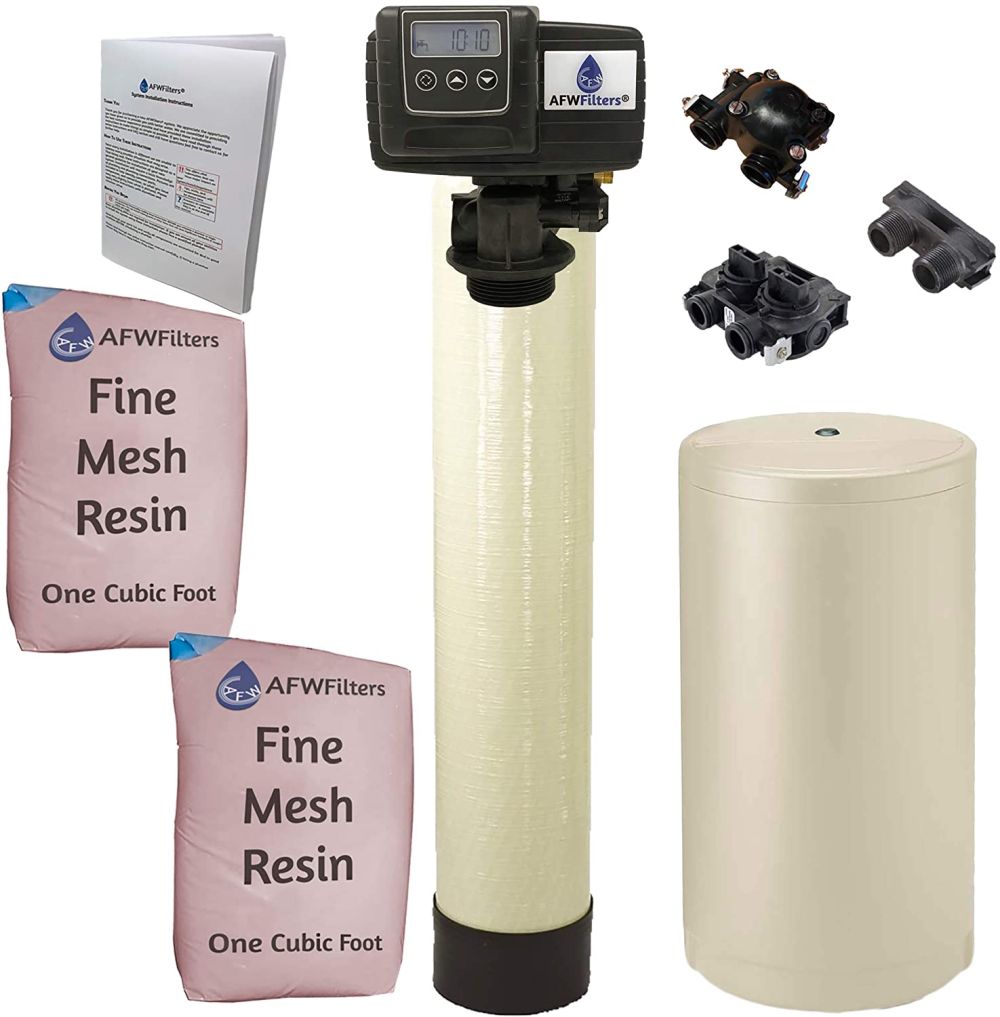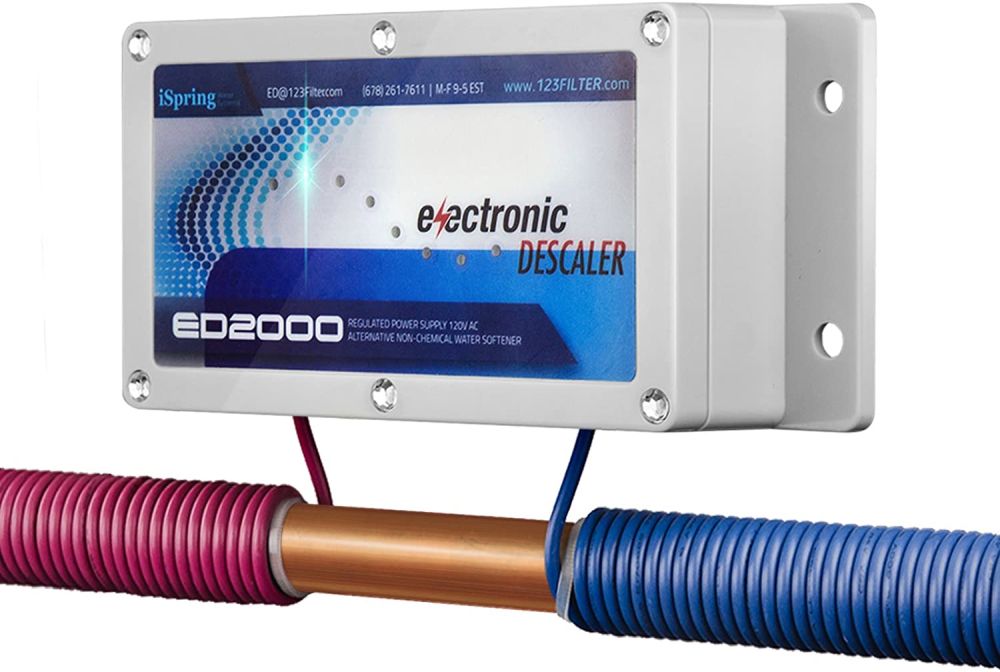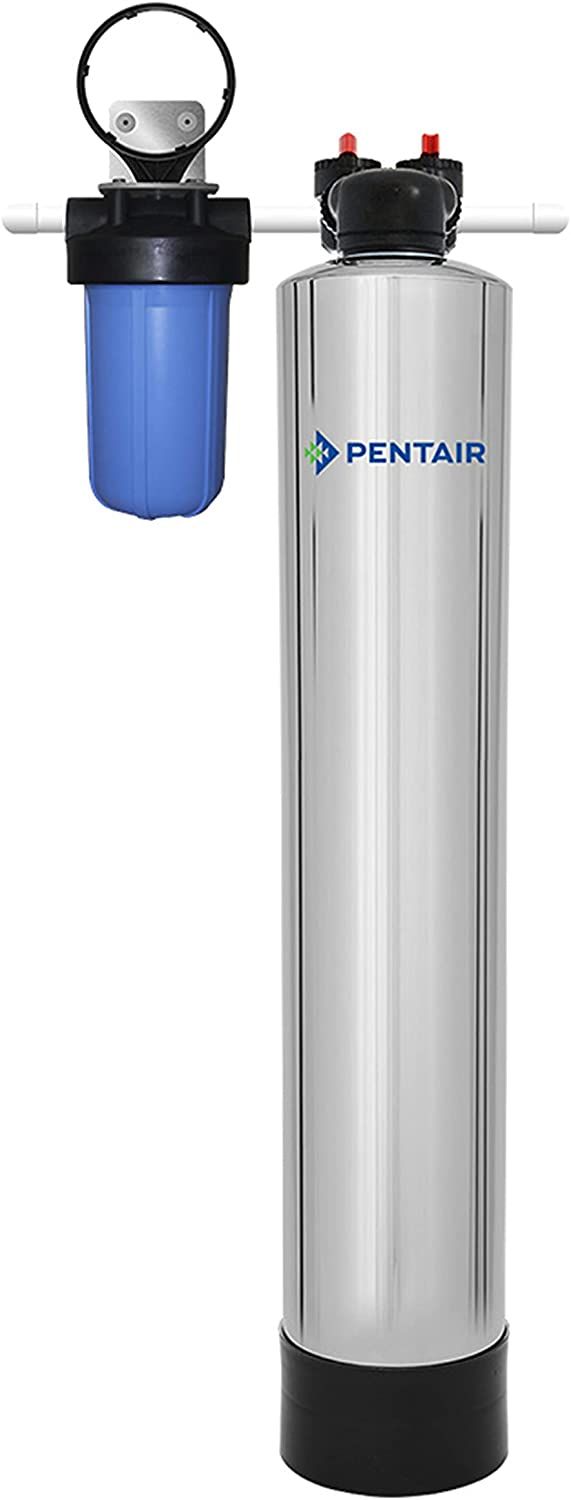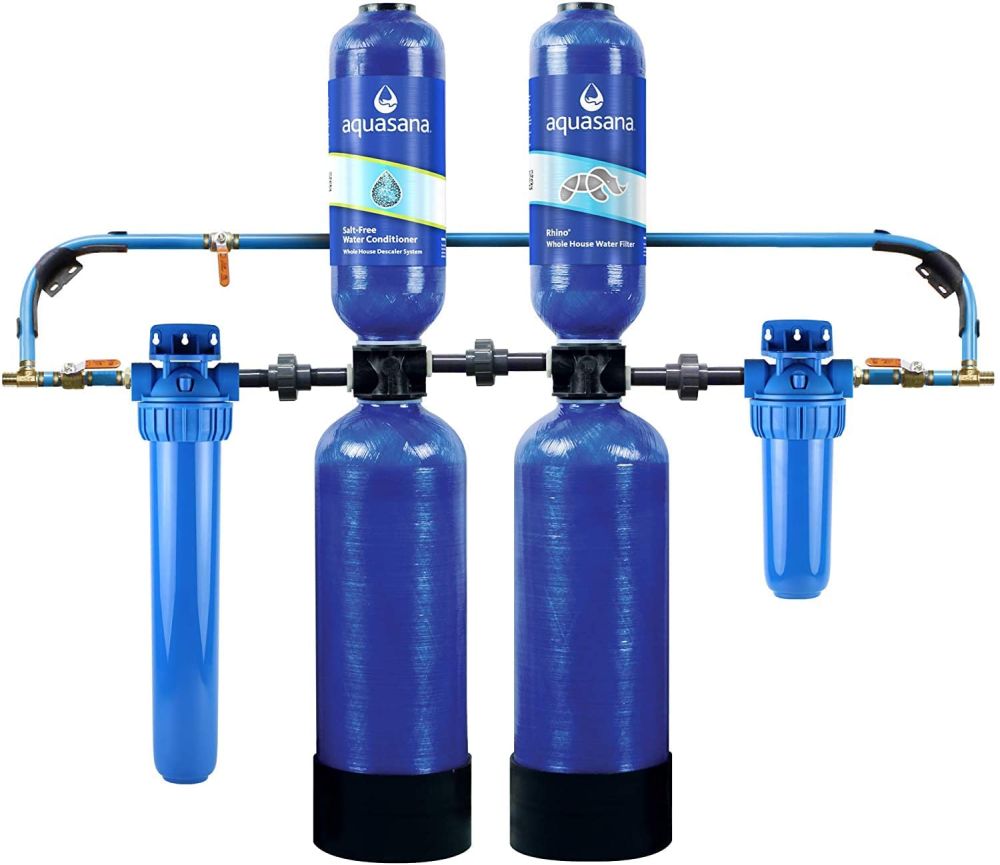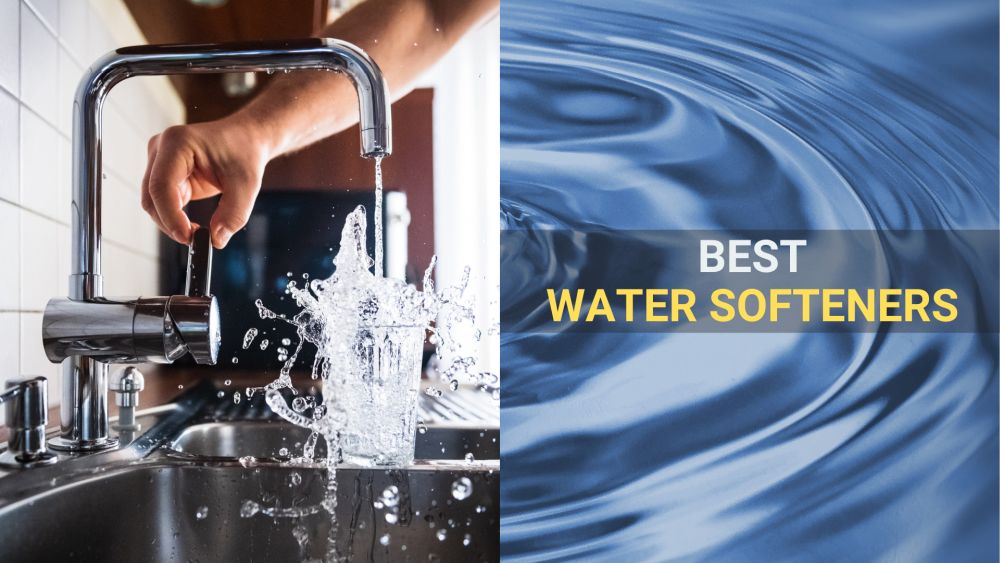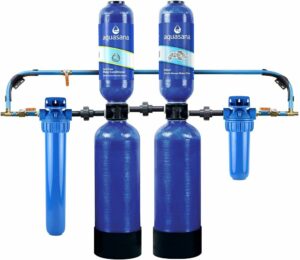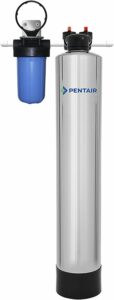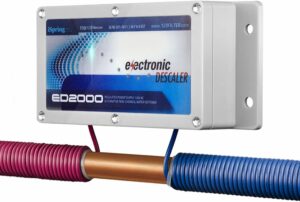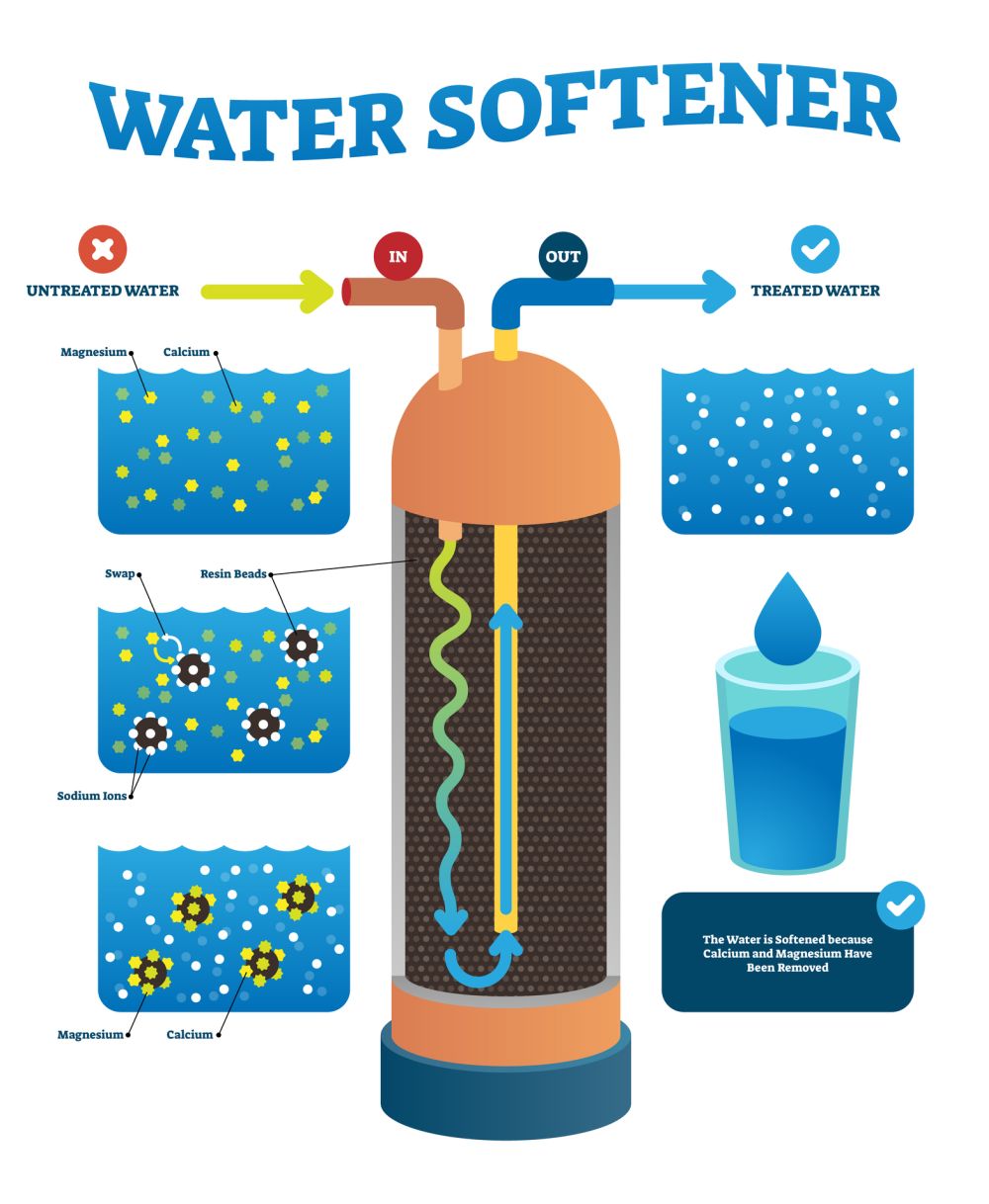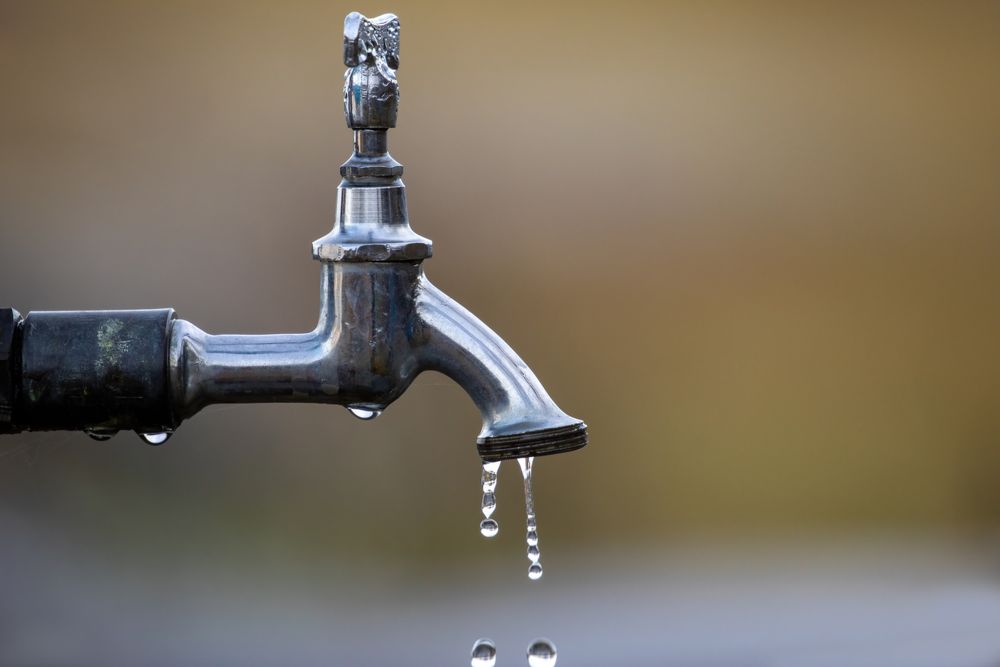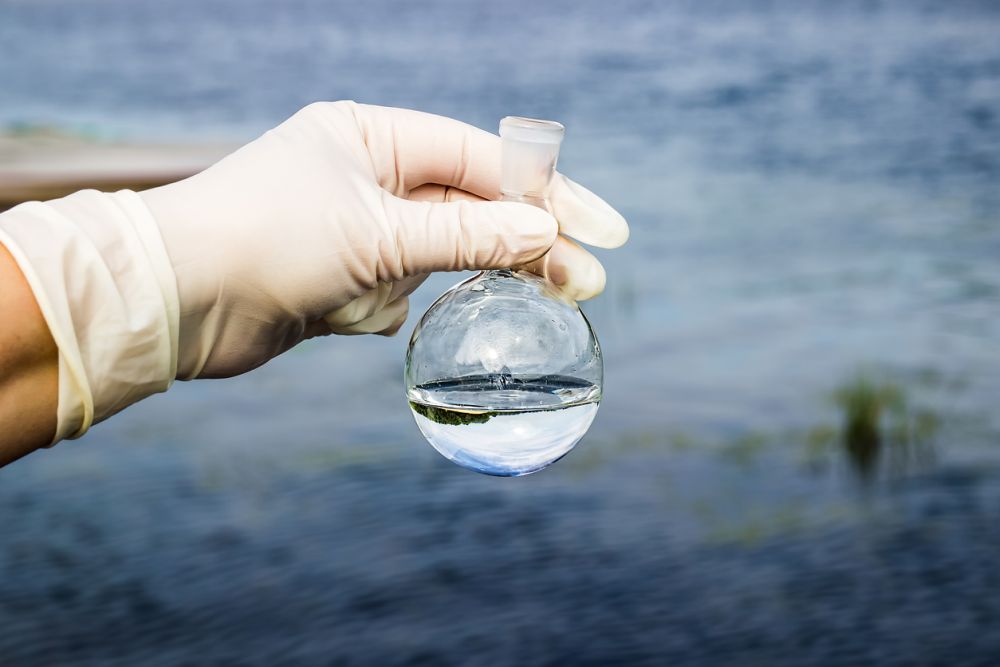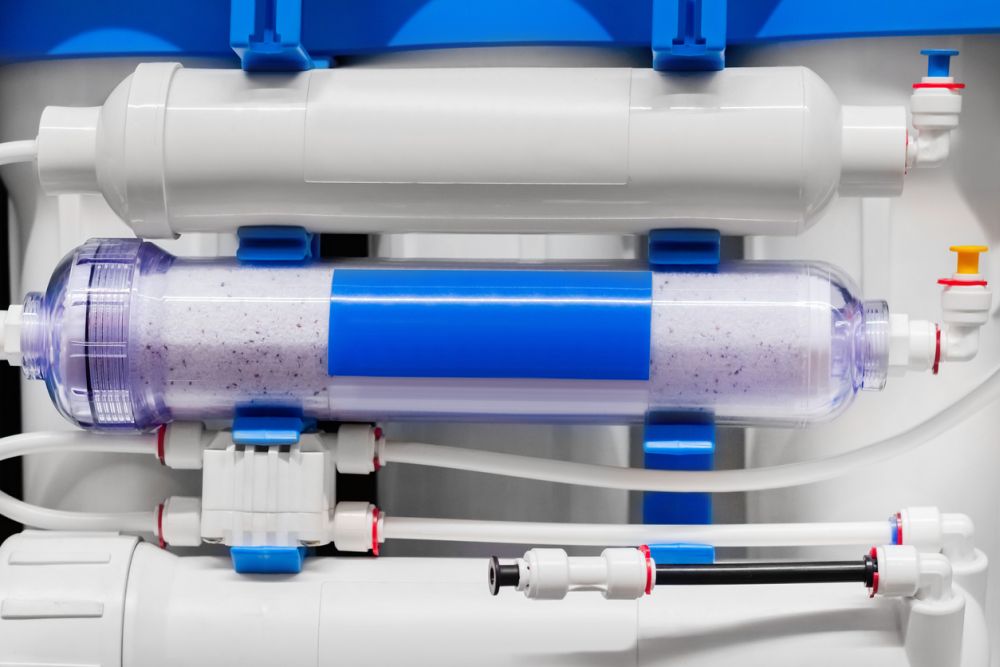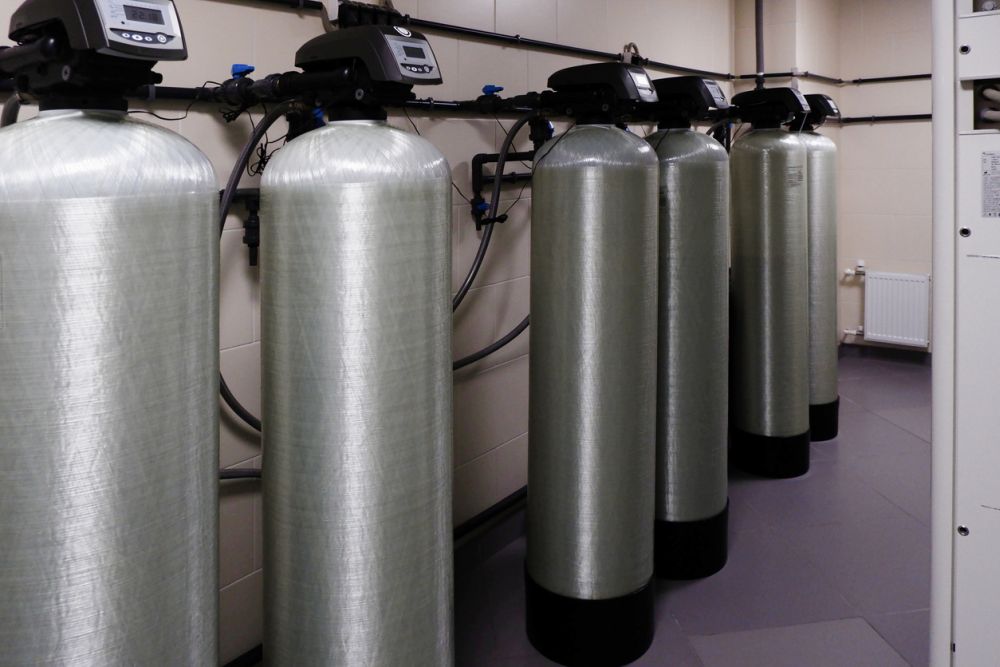The Best Water Softener: Top 10 Picks for Homeowners
If you’ve been noticing that your dishes aren’t coming as clean as they used to or that your laundry isn’t as bright, it may be time to consider a water softener.
This guide provides reviews of the best water softener systems, together with a helpful buying guide to assist you in making your purchase.
Homeowners usually have to deal with a wide range of house-related problems, and one of the biggest ones is hard water. It’s devastating for home appliances, and anti-calc tablets will work only if the water’s hardness level isn’t too high.
In addition to this, your kitchen and bathroom will always have traces of limescale and calcium since you can’t use clear water to clean them properly.
Plus, you won’t be able to drink the water or use it for your pets. Your indoor plants and garden will suffer, too. But you can make this nightmare go away by getting equipped with the best water softener for your home.
Table of Contents
The Best Water Softener Systems (Reviews)
Now, let’s take a closer look and find out more information about the best water softener systems in the business:
1.Aquasana EQ-1000-AST Whole House Water Filter and Salt-Free Water Conditioner
Aquasana EQ-1000-AST Whole House Water Filter and Salt-Free Water Conditioner is the best hybrid on this list for softening and filtering water. It has a 1,000,000-gallon capacity that lasts up to 10 years.
When it comes to filtering water, Aquasana removes up to 97% of chlorine, pesticides, VOCs, heavy metals, and other harmful agents.
It has a 7-GPM flow rate. And you can attach a salt-free water conditioner and UV filter for an additional cost.
Pros
- Best for water softener + filtering
- A steady 7-GPM flow rate
- Certified by the NSF and ANSI
- 90-day guarantee
- 10-year limited warranty
- Excellent customer service
Cons
- If you don’t need the filtering system, you can get a more powerful water softener
- Expensive for the entire combo
2. Pentair Pelican NS6-P Water Softener Alternative with Natursoft Salt-Free Technology
Pentair Pelican NS6-P Water Softener Alternative with Natursoft Salt-Free Technology comes with 99.6% scale prevention, certified by the NSF, ANSI, and other health organizations. It works with up to 75-GPG water hardness.
The softener provides an eco-friendly solution for neutralizing harmful agents from hard water by converting them into crystallized form by using Template-Assisted Crystallization (TAC) technology.
It doesn’t require electricity and doesn’t waste any water. At the same time, it preserves beneficial minerals like calcium and magnesium. You must replace the sediment pre-filter every 6 – 9 months but not the tank media.
Pros
- Two models available
- Up to 75-GPG water hardness and 15-GPM flow rate
- Certified by IAPMO R&T and NSF/ANSI 61
- Easy installation and maintenance
- Low maintenance costs
- Lifetime warranty and a 90-day money-back guarantee
Cons
- Expensive
3. iSpring ED2000 Whole House Water Descaler
If you’re on a budget and looking for the cheapest salt-free water softener for your entire home, you can’t go wrong with iSpring ED2000 Whole House Water Descaler.
It provides an alternative method for preventing limescale and mineral build-up by sending electromagnetic waves to your plumbing system. So it doesn’t change the chemical structure of the water.
The whole-house electronic descaler works with very hard water from 10 to 19 GPG and has a 10-GPM flow rate. You can install it on different pipes without professional assistance since it’s not necessary to modify your home’s plumbing system.
There aren’t scientific studies behind how this type of water softener works, but it has many excellent reviews written by satisfied customers. Furthermore, it’s the cheapest option on this list.
Pros
- Cheapest water softener on this list
- Up to 19 GPG (extremely hard water)
- A steady flow rate of 10 GPM
- Lifetime technical support
- Easy installation and maintenance
- Long lifespan
Cons
- Needs a power outlet
- Not certified
- 1-year warranty only
4. AFWFilters Iron Pro 2
AFWFilters Iron Pro 2 is the best option on this list if you’re looking for a salt-based water softener and iron filter.
It has a 64,000-grain capacity, works on water hardness up to 70 GPG, and uses a fine mesh resin with 10% cross-linking to eliminate high concentrations of up to 6 PPM iron, manganese, sediments, sand, and rust.
The water softener includes a Fleck 5600SXT digital-metered valve, which has an LCD display with touchscreen control and supports regeneration cycling. It’s really affordable.
Pros
- 64,000 grain capacity
- Water hardness up to 70 GPG
- 10% cross-linking mesh resin
- 6 PPM iron
- Digital-metered valve
- Affordable price
Cons
- Not certified
- Tricky to install
- Heavy
5. Filtersmart Whole House Water Filter System & Salt-Free Water Softener Combo
Filtersmart Whole House Water Filter System & Salt-Free Water Softener Combo hasn’t been on the market long, but it’s a promising product with glowing reviews. It combines a salt-less water softener with carbon filtration.
The water softener uses Template-Assisted Crystallization (TAC) technology. Meanwhile, the carbon filtration system counts on a natural coconut shell (Jacobi) to provide an eco-friendly solution for creating spring-like water filled with beneficial minerals, especially calcium and magnesium.
At the same time, it neutralizes chlorine, chloramine, volatile organic compounds (VOCs), pesticides, herbicides, synthetic organic compounds (SOCs), industrial solvents, and trihalomethanes chemical compounds (THMs).
The water softener has a 1,000,000 gallon capacity and lasts 10 years. It doesn’t need electricity or backwashing. And you should replace the pre-filter every 8 to 10 months.
Pros
- Water softener and carbon filtration
- Up to 99% effectiveness (certified)
- Up to 15 GPM flow rate
- 4 models available
- Lifetime warranty
Cons
- Not easy to install
- Expensive
6. NuvoH2O Manor + Taste Complete Water Softener System
NuvoH2O Manor + Taste Complete Water Softener System is the most complete product from Nuvo H2O.
Unlike other salt-less water softeners on this list, it uses citric acid and chelation to reduce the PH label and a 10-micron carbon-based filter to enhance the water’s taste.
Nuvo H2O Manor Duo System doesn’t need electricity. Furthermore, it doesn’t use chemicals to modify the water’s structure and doesn’t waste any water, making it an environmentally safe solution.
Discover more in our in-depth NuvoH2O review.
Pros
- Taste enhancing technology
- Up to 25 GPG water hardness
- Steady flow rate between 12 and 15 GPM
- Certified by the NSF and FDA
- Works well in a large home (more than 1500 sq ft)
- 90-day money-back guarantee and a 5-year limited warranty
- Long cartridge and filter lifespan
Cons
- Doesn’t work with very hard water
- Expensive
7. DuraWater Fleck 5600 SXT Meter Demand Water Softener
DuraWater Fleck 5600 SXT Meter Demand Water Softener is a decent salt-based water softener for large homes with very hard water.
Its models have different grain capacities, from 24,000 to 80,000. However, we think that the 64,000-grain capacity works best for a large household.
The water softener has a Fleck 5600 SXT LCD display with touchscreen controls to easily program the water regeneration mode. Plus, it uses a 10% cross-linked resin to soften the water.
The package includes an AFWFilters install kit, bypass valve, and a complete brine tank with float and overflow line. You can choose from black, blue, and almond colors.
Pros
- Works with extremely hard water (more than 15 GPG)
- 64,000-grain capacity
- LCD touchscreen controls
- Easy to configure
Cons
- Not that eco-friendly (creates waste)
- A bit expensive for what it offers
8. SpringWell FutureSoft Salt-Free Water Softener
Run by a company with 20 years of experience, SpringWell FutureSoft is one of the best whole house water softeners.
It uses a salt-free system to reduce water hardness and has excellent reviews from people who have noticed significant improvements to their water supply.
You can prolong the lifespan of your home appliances and faucets, safely water your garden and indoor plants, as well as create drinkable water for your family and pets.
It uses a Template-Assisted Crystallization (TAC) mechanism to convert harmful agents into calcite crystals.
It’s also possible to attach a UV water purification system to destroy bacteria and viruses when creating drinkable water.
Pros
- 99.6% scale prevention
- Excellent results when handling up to 81 GPG water hardness
- Zero drops in water pressure
- An awesome flow rate of at least 12 GPM
- Eco-friendly, no water waste or salt brine discharge
- Enhances the water’s taste
- 6-month money-back guarantee
- Lifetime warranty on tanks and valves
- Multiple models available (by number of bathrooms)
- Optional UV water purification system
- Low maintenance costs
Cons
- Expensive
- Not suitable for private wells unless the water is pre-treated
- Not certified by the NSF
9. Quality Water Treatment SoftPro Elite Water Softener for Well Water
Quality Water Treatment SoftPro Elite Water Softener for Well Water is the best salt-based water softener system from the manufacturer Quality Water Treatment, which has 30 years of experience.
It’s suitable for private wells, which are typically trickier in dealing with very hard water.
It has customizable plans so that you can choose the preferred grain capacity (from 24,000 to 80,000) and well pump flow rate (6 to 7 GPM, 8 to 10 GPM, or more than 11 GPM).
You can also attach a reverse osmosis system to alkalize and filtrate water in 5 stages to remove up to 98% of lead, barium, mercury, and phosphate.
Pros
- Next-Generation High-Efficiency technology
- High-Flow programmable control valve
- Up to 80,000 grain capacity
- Emergency 15-minute recharge if the water capacity drops below 3%
- Save up to 30% salt by pre-making only 70% of the brine
- The brine tank stays clean since it receives only treated soft water
- Auto-refresh to stop bacteria growth if no water is used for 7 days
- Certified by the NSF, ANSI, IAPMO, and ISO 9001
- Lifetime warranty
- Live customer support
Cons
- Expensive
- You might need to hire a plumber
10. Quality Water Treatment Fleck 5600 SXT Water Softener System 
Also from Quality Water Treatment comes a budget-friendly variant for installing a salt-based water softener in your home: Quality Water Treatment Fleck 5600 SXT Water Softener System.
When purchasing the product, you can pick the grain capacity from 24,000, 32,000, 40,000, 48,000, and 64,000.
As far as upgrades are concerned, you can add a high-efficiency SST-60 resin, chlorine and heavy metal remover, a reverse osmosis system with an advanced water alkalizer, or a whole-house chlorine remover and drinkable water filter.
Pros
- Cheap
- From 7 GPM for 24,000 grain capacity and up to 15 GPM for 64,000 grain capacity
- 5-year valve warranty and 10-year tank warranty
- Easy installation
- Easy maintenance, thanks to automatic settings
- Can be controlled from a mobile app
Cons
- Doesn’t support proportional brining
- Can’t auto-refresh the system
- No vacation mode
- No auto reserve or backwash variable
- Not certified by the NSF
Water Softeners (Buying Guide)
Buying a water softener is not also a smart decision but also essential for homeowners who have problems with hard water.
The best systems in the business are pricier than others, but they will end up saving you a lot of money in the long run: no more broken appliances and no more buying bottled water.
How Does a Water Softener Work?
A water softener removes the negative effects of hard water, including magnesium and calcium, using a chemical process that usually involves ion exchange. This can be done in multiple ways, but the most popular method is to use salt. Other water softeners like Nuvo H2O use chelation and citric acid instead.
If the softener comes equipped with a water filtration system, you will also be able to drink the water and use it for your pets. It depends on how elaborate the product is.
Water Softener Advantages
No matter how you put it, the advantages of water softeners outweigh the disadvantages:
- Prolong the lifespan of your plumbing system and water-based household appliances, such as washing machine, water heater (including tankless water heaters), dishwasher, and air humidifier. Over time, you will save a lot of money by not having to replace your pipes or appliances due to excess calcium
- Keep a cleaner house by eliminating stains in your bathroom and kitchen. It’s convenient because you will eliminate frustrations by saving time and money otherwise spent on scrubbing the floors and buying expensive detergents
- If you also throw in a water filter and UV lamp, you can make your water drinkable, enhance its taste, and preserve the beneficial minerals. You will also save money because you won’t have to buy bottled water anymore
- Improve your hair and skin since you will be able to take showers and baths with clean water
- Increase the quality of the water used for indoor plants, garden, lawn, and pets
- The electricity costs are negligible
- Many water softeners have a low impact on the environment
Water Softener Disadvantages
Most downsides are related to the costs involved:
- The best water softener systems are expensive, especially if you’re looking for extra features, like a carbon filter or UV lamp to create drinkable water, as well as high grain capacity, flow rate, and water hardness
- Cartridges and filters must be regularly replaced
- When it comes to salt-based water softeners, you have to regularly fill the tank with salt for brine production (usually once per month)
- Some softeners produce wastewater, which can be very hard to recycle (depending on where you live) due to excess sodium chloride. It shouldn’t be dumped on grass, plants, lakes, or rivers because it poses a threat to all life
- Although salt-less water softeners are friendlier with the environment than their salt-based counterparts, they don’t work well with very hard to extremely hard water
- It’s not recommended for people with health risks to drink salt-based softened water due to a predisposition to hypertension, high blood pressure, and other conditions
- The water softener needs to be adapted to your plumbing system, which means hiring a plumber. Depending on your home’s layout and the complexity of the softener system, this can end up costing you a lot of money for the installation alone
- The wastewater produced by ion-exchange water softeners could overload septic systems
What to Look for When Buying a Water Softener
There are several aspects to take into account when researching the market for the best water softener system. Here are the most important ones:
Salt-based or Salt-less
A water softener does its job by using a salt-based mechanism or something else. The salt-based version is better for your home if you have very hard water (over 15 GPG). This type of system uses ion exchange to efficiently get rid of harmful minerals.
Meanwhile, salt-less water softeners are more suitable for homes where the water hardness level is low or moderate. They are specifically designed to modify the structure of the minerals, in order to remove limescale. Additionally, salt-free systems are eco-friendly and require minimal upkeep.
Grain Capacity
When opting for a salt-based water softener, it’s crucial to take into consideration its grain capacity. A higher grain capacity is more expensive, but it covers a larger volume of water. There’s a bit of math involved here, but nothing you can’t handle without professional help.
To determine the required size of the grain capacity for your household, you must calculate the water hardness (GPG) and amount of iron (PPM). It’s also important to estimate the total amount of water used daily, as well as to find how long the softener takes to regenerate water.
For each 1 PPM of iron, you must add 5 GPG units. The resulting value must be added to your household’s total GPG. Then, multiply that value by the total amount of water consumed each day by all family members. The resulting number must be again multiplied with the number of days between regeneration cycles.
For 5-10 GPG water hardness and 3-4 people, it’s recommended to get a softener with a 32,000 grain capacity. For 76-100 GPG and 1-2 people, you need 80,000 grain capacity.
Flow Rate
The flow rate is measured in gallons per minute (GPM) and determines the speed at which the softened water will flow to the faucet and ultimately indicates the water pressure. Most residential water softeners have a flow rate somewhere between 5 and 7 GPM.
However, the best water softeners for a whole-house system are capable of handling from 12 to 20 GPM, depending on the size of your home and the number of bathroom units.
Cross-Link Percentage and Durability
A salt-based water softener uses ion exchange based on resin to process the water and remove the harmful agents. What you’re interested in is the cross-linking factor, which is directly tied to the softener’s durability.
A higher percentage of cross-linking (8-10%) creates a long-lasting water softener that can resist damage and oxidation. Sure, it’s more expensive, but you will be prolonging the softener’s lifespan.
Certifications
Some water softener brands are approved by third-party, independent health and safety organizations like the NSF, which provides testing, inspection, and certification.
It’s a huge bonus that helps build the product’s credibility, so keep an eye out for the ANSI/NSF 44 certification standard when researching the best home water softener systems.
This doesn’t necessarily mean that smaller water softener manufacturers without certifications are unreliable and should be ignored. But the big brands who have been in the market longer are usually the ones that can afford to pay for independent testing.
Price
After comparing the pros and cons of each water softener, it all boils down to the price: can you afford it or not? If you’re not in a hurry, we strongly recommend putting some money aside to invest in a more expensive water softener for your home. In addition to practicality and comfort, you will get your money’s worth and get a return on investment.
How to Clean a Water Softener
The first step toward cleaning a water softener is following the instructions of your manufacturer. That being said, there are several steps you can take to efficiently perform the cleaning:
- Make sure to put the water softener in bypass mode (check the manufacturer instructions)
- Remove everything that connects the water softener and the brine tank
- Put on a couple of sanitary gloves for your safety
- Remove any remaining water from the tank and dump it. Don’t pour it on grass, plants, or anywhere that animals can reach since the water is rich in sodium and therefore harmful
- Remove any remaining salt. If it’s hardened, you should chop it away. You can also pour some hot water to loosen the block of salt
- Now, pour about 1-2 gallons of warm water and add some dish soap into the tank
- Using a brush with a long handle, scrub the inner walls of the tank (don’t touch the water without the sanitary gloves)
- Dump the dirty water and rinse the tank with clean water
- Next, pour about 1-2 gallons of cold water and add a bit of bleach. Stir it using the long-handled brush and leave it alone for 30-40 minutes
- Then, scrub the inner walls of the tank using chlorine water (don’t touch the water at all)
- Dump the dirty water and rinse the tank
- Reconnect the water softener to the brine tank
- Add water and salt to the brine tank as per your manufacturer’s refill instructions
- Take the water softener out of bypass mode. You’re all set!
FAQ
Discover more helpful information about water softeners.
Do water softeners need to be cleaned?
It’s recommended to clean both salt-based water softener tanks every time you refill them: the one that contains the resin and the one with the salt.
Can you drink softened water?
It’s generally safe to drink softened water, but it depends on the type of system. For example, salt-based water softeners can be dangerous for people with hypertension, high blood pressure, and other conditions triggered by high sodium intake.
What are the signs that I need a water softener?
A simple test is to leave water in a glass overnight and then check it the next day. If the glass has sodium stains that are difficult to remove after pouring the water, even when using detergent, it means that you have hard water.
But the obvious sign is represented by stains in your kitchen and bathroom. They don’t go away no matter how hard you try to clean them and what expensive detergents you try because you are still using the same water for cleanup.
Another sign is that your home appliances start to break down faster, even after using anti-calc tablets because they are not effective against very hard water.
You might also notice dry hair and skin, especially after going away on vacation and then returning home and taking a bath or shower. Moreover, the water has a completely different taste when comparing it to bottled water.
Can I install a water softener myself?
Yes, it’s possible to install a water softener at your own pace. It gives you the chance the better understand how the system works and what to check when something goes wrong. However, it’s not for everyone.
If you’re not skilled in this area, you should do it on your own because it means working with your home’s plumbing system. Instead of shaving off the installation costs, it’s safer to hire a professional.
Is it better to drink hard or soft water?
Hard water contains minerals that are beneficial for your body while soft water lacks those minerals. As far as taste is concerned, hard water might feel salty but soft water can leave your mouth feeling dry.
However, if you install a water filter under the sink with a separate faucet or a reverse osmosis system, it will add beneficial minerals to the water after softening it.
Attaching a UV lamp is even better because it will destroy all bacteria and produce healthy and tasty soft water. After getting used to it, numerous people prefer it over bottled water.
Final Thoughts
We have already established that different people have different necessities for their home: such as grain capacity, flow rate, salt-based or salt-less systems, and so on.
Whatever water softener system you end up getting, be sure to later return to this page and leave us your feedback in the section below.
